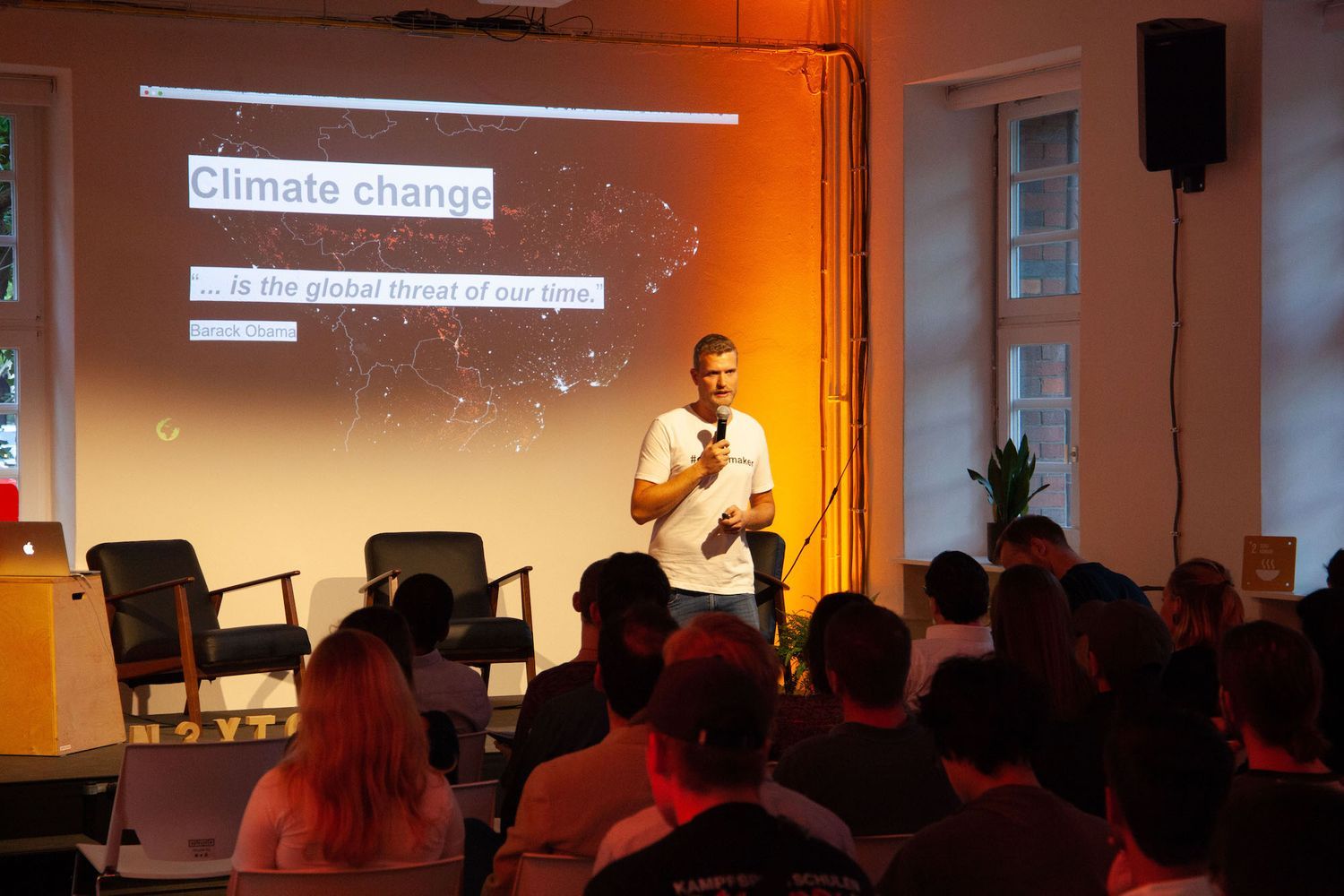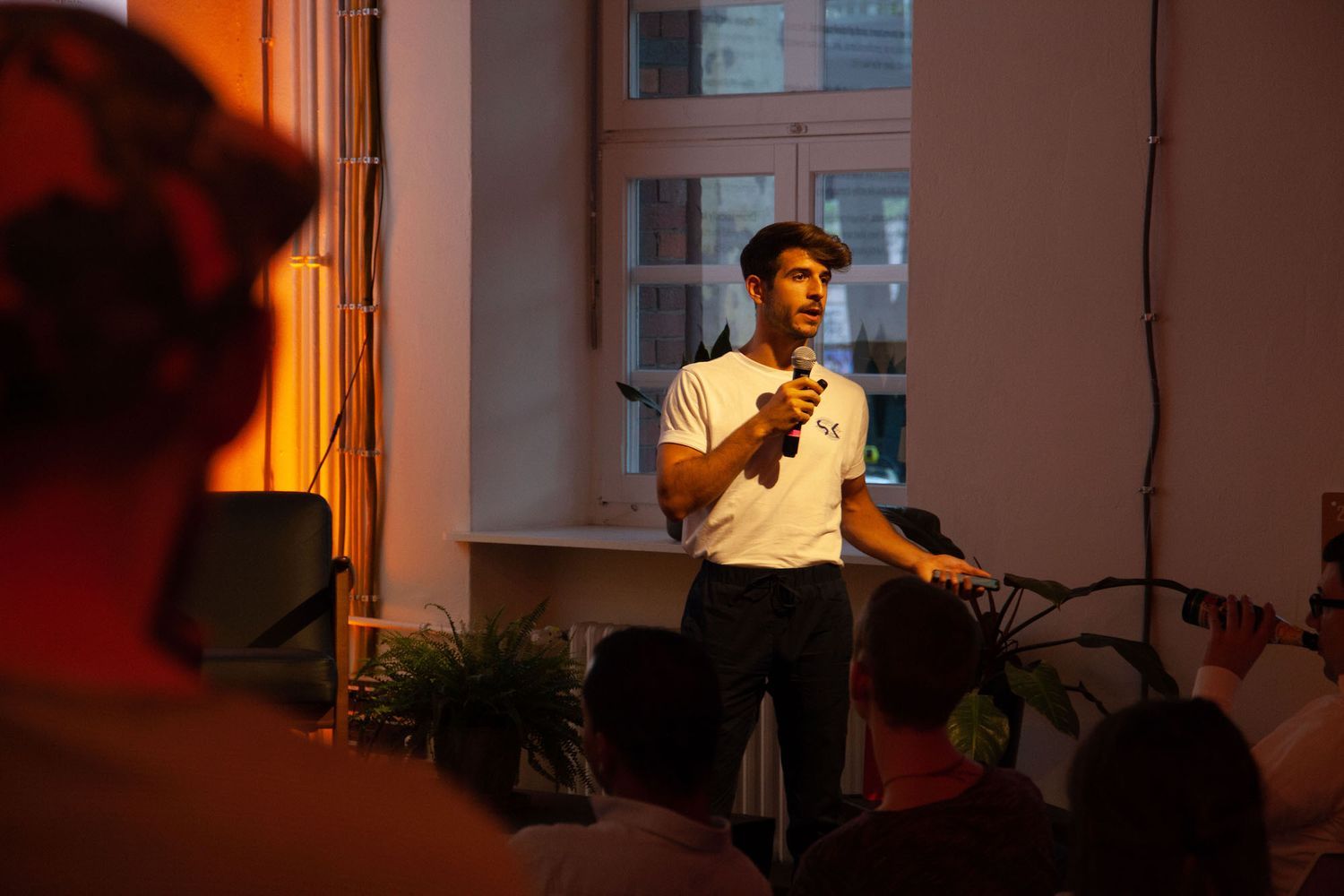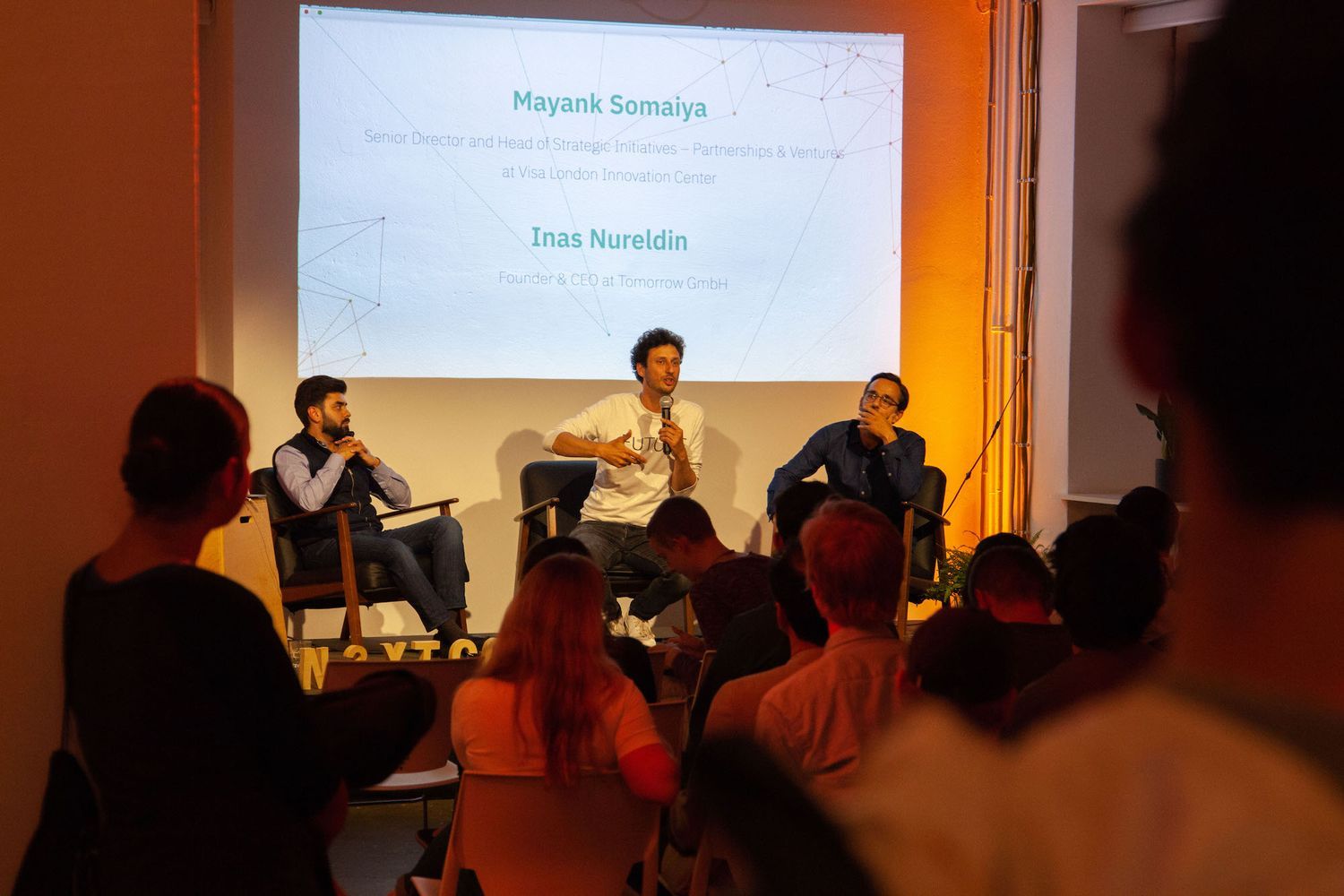N3XTCODER Meetup "Fintech 4 Impact" at Spielfeld Digital Hub
written by Meike Bingemann2019-09-24T17:30:43.900ZCan FinTech drive positive change?
FinTech businesses are rapidly transforming the financial industry and digital innovation can significantly improve the customer experience. But do they also use this enormous potential to drive positive social change, create meaningful social impact, and contribute to achieving the UN Goals for Sustainable Development?
“My wish is that more entrepreneurs embrace the idea of creating positive impact for the world and take this into consideration when creating their business model.”, Inas Nureldin Founder Tommorrow GmbH
In collaboration with VISA, N3XTCODER has announced its FinTech4Impact Challenge looking to cultivate game-changing ideas in the financial sector with the aim of creating social impact. Marking its launch, N3XTCODER invited change makers who have been developing innovative products, challenging the industry, and targeting consumer behaviour to the kick-off event on September 3 at Spielfeld Digital Hub in Berlin.
Responsible consumption: Encouraging consumers to make sustainable decisions based on their purchases
“When you buy something, do you really know what you are buying into? We have given ourselves the task of educating consumers about the ecological impact of their consumption behaviour.”, David Lais, CEO & Founder of Organisation for Sustainable Development

David Lais introduced an algorithm that analyses payment transactions and measures the environmental impact of a single purchase. A CO2 equivalent is calculated for every purchase made, in turn informing customers about the implications of their consumption as well as offering advice on sustainable purchasing habits.
In a first step, the data collected will inform about the consumers purchase decisions based on defined categories. For example, one Euro spent at a gas station equals a specific amount of CO2 equivalent. Consumers will be notified about their real-time carbon footprint and receive recommendations on sustainable mobility options or carbon offsetting. The organisation states that:” If consumers become increasingly aware of the environmental impact of their actions, they will be more inclined to change their consumption behaviour in a sustainable manner.”(source).
If you want to find out more about OfNK, visit their website.
Reduce inequality: Providing small scale entrepreneurs with access to financial services/investments
Innovative ideas are often not coming to fruition because of a lack of financial support, in particular in the social impact space. Only a limited number of people and institutions are able to fund businesses and play an active role in developing innovative solutions at their early stages. It is nearly impossible for a large group of people, namely retail investors, to get access to those businesses for a number of reasons, including required ticket size, liquidity and administrative and operative obstacles on the side of the businesses to give those investors access. Alexander Molé, Head of Strategic Partnerships at Neufund, explained how his company is tackling this issue with the aim of opening the possibility of supporting innovation and participating in this upside to all and hence building financial inclusion.
‘‘We democratise access to capital for innovators and entrepreneurs and make investing easy, safe and accessible to everyone.”, Alexander Molé, Head of Strategic Partnerships at Neufund

Neufund allows entrepreneurs to source from a large and diverse pool of investors and vice versa. By splitting a company’s equity into thousands of digital tokens on the blockchain, everyone has the opportunity to invest alongside professional investors from as little as 10 Euros. Fractional ownership lowers the barrier to entry and makes investment opportunities more accessible for all, allowing innovators to bring their products to the market. This considerably improves the likelihood of innovators to attract financing and bring their products and services to the market. N3XTCODER and Neufund have also announced a partnership to give ventures who are part of the N3XTCODER Impact Studio access to the Neufund investor community.
Should you want to invest yourself or learn more about the process visit Neufund.org
In a final discussion, Inas Nureldin (Founder and CEO of Tomorrow) and Mayank Somaiya (Senior Director and Head of Strategic Initiatives on the Ventures team for Visa in Europe) shared their thoughts on the future of banking and how consumers can drive sustainable development.

“The capabilities that are coming with sustainable banking allow consumers to understand what kind of carbon footprint they have", Mayank Somaiya, Senior Director and Head of Strategic Initiatives on the Ventures team for Visa in Europe
People are becoming increasingly concerned as to where their money is being invested. In turn, there is an increasing desire for bank accounts to be utilised for ethically tenable investments. In combination with a rising demand for technological solutions that enable customers to quickly track their flow of money, preferably on a smartphone, these factors led to the idea of Tomorrow. They are a mobile bank that solely invests in environmentally sustainable and socially responsible ventures. During the discussion, Inas argued the strong business case for sustainability and stressed that impact and scale are not mutually exclusive but work well together. With this in mind, Tomorrow aims at becoming Europe’s largest sustainability bank.
“With Tomorrow we want to take sustainable banking out of the niche into the mass market”, Inas Nureldin, Founder and CEO of Tomorrow GmbH
Your voice counts – creating a strong demand/lobby for more sustainability in the finance sector
Visa is increasingly looking for sustainable initiatives to collaborate with. Partnering with Tomorrow was an excellent opportunity to contribute to a greener financial sector. Mayank emphasised that consumers are demanding more sustainability and technology solutions that provide awareness and transparency to grow. A change in consumer behaviour will continue to play a central focus of Visa as it seeks to grow in scale with social and ecological innovations. But not only should the private sector set examples for meaningful innovation, governments need to become more innovative as well. While many entrepreneurs and civil society are increasingly voicing the need for radical change, governments seem to be lacking behind. Although politics are reacting to current developments, developing and implementing the right policies takes a lot of time. Hence, all of us need to become louder, join forces, and create a strong lobby for sustainable development (learn more about the Social Entrepreneurship Netzwerk Deutschland - SEND here).
Nevertheless, overcoming the global challenges we face today, such as climate change or increasing income inequalities, is largely dependent on higher levels of funding for sustainable solutions and more efficient governmental regulations. The key protagonists introduced at the kick-off event of the N3XTCODER Fintech4Impact Challenge are inspiring many innovators and entrepreneurs to join in and maximise FinTech’s potential for positive social impact.